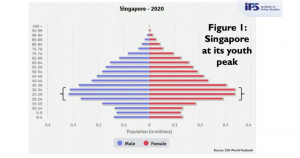Singapore — Ambassador-at-Large Professor Chan Heng Chee commented on the recent General Election in a virtual lecture on Wednesday (July 15) hosted by the Institute of Policy Studies (IPS), a think-tank from the Lee Kuan Yew School of Public Policy at the National University of Singapore (NUS).
The lecture is one of her three-part series as an SR Nathan fellow with the IPS and was moderated by Mr Bilahari Kausikan, a retired diplomat and Chairman of the Middle East Institute, NUS.
GE2020: A “historical watershed”
Prof Chan described the General Election as a “historical watershed” with the Workers’ Party winning two GRCs and one SMC for a total of 10 seats in Parliament. This led to WP Secretary-General Pritam Singh being formally designated as the Leader of the Opposition. This means that he will be given staff support and resources to carry out this role.
Prof Chan felt that Singapore is divided with some people choosing “safety, security, and solution by returning the incumbent People’s Action Party (PAP)” but some also “at the same time wanted to strengthen opposition voices and checks and balances in the legislature”.
Prof Chan said that the votes cast by Singaporeans were dependent on the past five years of governance, how the government has dealt with the Covid-19 pandemic in the past five months, and the nine days of campaigning.
She added that some unpopular policies that may have cost PAP some votes are the amendment to the Elected Presidency and the Protection from Online Falsehoods and Manipulation Act (Pofma). Other factors include the rising anxieties among businesses and people as well as the unclear communication arising from the micromanaging of the Covid-19 pandemic.
Similarly, the nine days of campaigning was also mainly about messaging, social media, having an online presence and the tech-savviness of parties to be able to garner support and vote.
Singapore is at her “youth peak”
According to Prof Chan, the PAP needs to better engage younger voters as Singapore is at a “youth peak”. She commented that the WP’s younger candidates such as 44-year-old Jamus Lim and 26-year-old Raaesah Khan and their issues posed were able to resonate more with the younger voters.
The younger voters, which Prof Chan called the “Zoomer generation” are more drawn to “personal narratives” and empathetic sentiments such as “I feel your pain, connectivity, approachability and authenticity”.


“These online digital politics is now the new retail politics — up close and personal,” Prof Chan said. She also pointed out, from observing overseas trends, that she does not think that this demographic group of voters will become more conservative as they age.
In this regard, WP was successful in securing its online presence by issuing personal videos and commentaries such as its “At Home” series, with Ms Nicole Seah and Ms Sylvia Lim being interviewed in the comfort of their homes, showing a more genuine side as compared to the usual rally speeches as before.
Prof Chan also believes that voters will “continue to support diversity in Parliament as a good thing” even though their personal concerns may change at different stages of life. As such, moving forward, the PAP has to better understand this group of younger voters better to “win back their votes”.
She commented that younger voters have a strong desire to see incumbents play politics more “fairly” when dealing with opposition parties.
She said: “Educated and younger Singaporeans do not want to see political overkill when the government deals with political opponents. This may be the result of the decades-long predominance of the ruling party in parliament and in government that as politics matures and evolves these are the values and norms that have come to be shared by the society and the community.” /TISG

